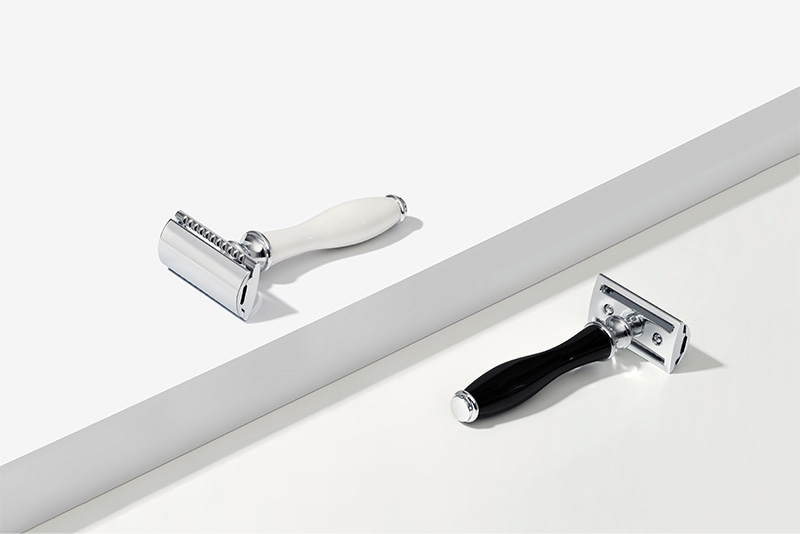Benefits and drawbacks of shaving with a safety razor

Shaving with a safety razor offers several benefits compared to other shaving methods. Here are some of the main advantages as well as some potential drawbacks.
Closer shave: Safety razors are known for providing a closer shave compared to disposable razors or electric shavers. The single, sharp blade of a safety razor can cut the hair more closely to the skin, resulting in a smoother shave.
Cost-effective: Although the initial investment in a safety razor may be higher than disposable razors, in the long run, it can save you money. Safety razor blades are typically less expensive than disposable cartridges, and they tend to last longer. You can often find affordable blade refill packs that provide several months’ worth of shaves.
Environmentally friendly: Disposable razors contribute significantly to plastic waste. By switching to a safety razor, you reduce your environmental impact since most safety razor components are reusable and the only waste generated is the razor blades, which are typically recyclable.
Less irritation: Safety razors are designed to minimize irritation and razor burn. The single blade reduces the chances of tugging or pulling on the hair, resulting in a smoother and less irritating shave. Additionally, many people find that using a safety razor helps reduce ingrown hairs.
Control and maneuverability: Safety razors are designed with a handle that provides excellent control and maneuverability. This allows you to navigate the contours of your face or body more easily, making it easier to achieve a precise and even shave.
Traditional and nostalgic experience: Shaving with a safety razor can offer a sense of tradition and nostalgia. Many people enjoy the ritualistic aspect of using a classic shaving tool and appreciate the craftsmanship and history associated with safety razors.
It’s worth noting that shaving preferences can vary from person to person, so what works well for some may not work as effectively for others. Trying different methods and tools to find what works best for your specific needs and skin type is a good idea.
While shaving with a safety razor offers several benefits, there are also a few potential drawbacks to consider:
Learning curve: Shaving with a safety razor requires a bit of practice and technique. Getting accustomed to the correct angle, pressure, and motion required to achieve a close shave without causing irritation or cuts can take some time. Initially, you may experience some nicks or razor burn until you become more proficient with the technique.
Time-consuming: Shaving with a safety razor can take a bit more time compared to using disposable razors or electric shavers. Since safety razors have a single blade, you may need to make multiple passes to achieve a close shave. This may not be ideal for those who prefer a quick shaving routine.
Blade replacement: Safety razor blades need to be replaced periodically. While blade replacement is generally affordable, it requires regular maintenance and monitoring of blade sharpness. Some people may find the process of changing blades cumbersome or time-consuming.
Less convenience for travel: If you frequently travel, using a safety razor may pose some inconvenience. Airline regulations often restrict the transportation of sharp objects, including razor blades. You may need to plan ahead or purchase blades at your destination, which can be less convenient compared to disposable razors.
Increased risk of cuts: Although safety razors are designed to minimize the risk of cuts compared to straight razors, there is still a possibility of nicks or cuts, especially when you’re still getting accustomed to using the razor. It’s important to exercise caution and take your time while shaving to minimize the risk of injury.
Overall, while there are a few drawbacks, many people find that the benefits of shaving with a safety razor outweigh these considerations. With practice and patience, most individuals can achieve a comfortable and enjoyable shaving experience with a safety razor.